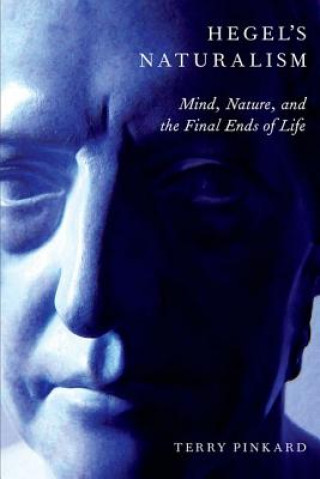
Kód: 04532108
Hegel's Naturalism
Autor Terry P. Pinkard
Terry Pinkard draws on Hegel's central works as well as his lectures on aesthetics, the history of philosophy, and the philosophy of history in this deeply informed and original exploration of Hegel's naturalism. As Pinkard explai ... celý popis
- Jazyk:
 Angličtina
Angličtina - Väzba: Brožovaná
- Počet strán: 228
Nakladateľ: Oxford University Press Inc, 2013
- Viac informácií o knihe

Mohlo by sa vám tiež páčiť
-

German Philosophy 1760-1860
62.82 € -
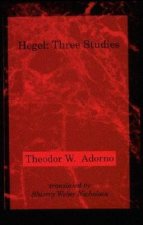
Hegel
54.65 € -

Wind in the Willows
22.88 € -12 % -

In Praise of Shadows
8.36 € -19 % -
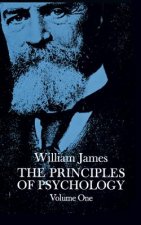
Principles of Psychology, Vol. 1
32.87 € -2 % -

Wind in the Willows
16.33 € -23 % -
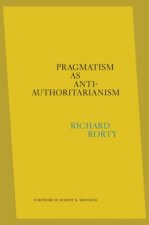
Pragmatism as Anti-Authoritarianism
28.33 € -2 %
Darujte túto knihu ešte dnes
- Objednajte knihu a vyberte Zaslať ako darček.
- Obratom obdržíte darovací poukaz na knihu, ktorý môžete ihneď odovzdať obdarovanému.
- Knihu zašleme na adresu obdarovaného, o nič sa nestaráte.
Viac informácií o knihe Hegel's Naturalism
Nákupom získate 174 bodov
 Anotácia knihy
Anotácia knihy
Terry Pinkard draws on Hegel's central works as well as his lectures on aesthetics, the history of philosophy, and the philosophy of history in this deeply informed and original exploration of Hegel's naturalism. As Pinkard explains, Hegel's version of naturalism was in fact drawn from Aristotelian naturalism: Hegel fused Aristotle's conception of nature with his insistence that the origin and development of philosophy has empirical physics as its presupposition. As a result, Hegel found that, although modern nature must be understood as a whole to be non-purposive, there is nonetheless a place for Aristotelian purposiveness within such nature. Such a naturalism provides the framework for explaining how we are both natural organisms and also practically minded (self-determining, rationally responsive, reason-giving) beings. In arguing for this point, Hegel shows that the kind of self-division which is characteristic of human agency also provides human agents with an updated version of an Aristotelian final end of life. Pinkard treats this conception of the final end of "being at one with oneself" in two parts. The first part focuses on Hegel's account of agency in naturalist terms and how it is that agency requires such a self-division, while the second part explores how Hegel thinks a historical narration is essential for understanding what this kind of self-division has come to require of itself. In making his case, Hegel argues that both the antinomies of philosophical thought and the essential fragmentation of modern life are all not to be understood as overcome in a higher order unity in the "State." On the contrary, Hegel demonstrates that modern institutions do not resolve such tensions any more than a comprehensive philosophical account can resolve them theoretically. The job of modern practices and institutions (and at a reflective level the task of modern philosophy) is to help us understand and live with precisely the unresolvability of these oppositions. Therefore, Pinkard explains, Hegel is not the totality theorist he has been taken to be, nor is he an "identity thinker," a la Adorno. He is an anti-totality thinker.
 Parametre knihy
Parametre knihy
Zaradenie knihy Knihy po anglicky Humanities Philosophy History of Western philosophy
69.18 €
- Celý názov: Hegel's Naturalism
- Podnázov: Mind, Nature, and the Final Ends of Life
- Autor: Terry P. Pinkard
- Jazyk:
 Angličtina
Angličtina - Väzba: Brožovaná
- Počet strán: 228
- EAN: 9780199330072
- ISBN: 0199330077
- ID: 04532108
- Nakladateľ: Oxford University Press Inc
- Hmotnosť: 336 g
- Rozmery: 231 × 161 × 14 mm
- Dátum vydania: 17. October 2013
Obľúbené z iného súdka
-

Meditations
12.09 € -2 % -

The Myth of Sisyphus
8.06 € -

Why I Am so Clever
4.13 € -11 % -

Meditations
15.32 € -20 % -

Republic
11.99 € -16 % -

Beyond Good and Evil
10.98 € -23 % -

Gay Science
16.83 € -

Aphorisms on Love and Hate
3.52 € -24 % -
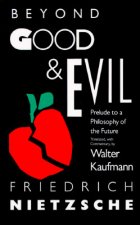
Beyond Good & Evil
14.92 € -8 % -
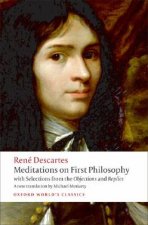
Meditations on First Philosophy
10.98 € -23 % -
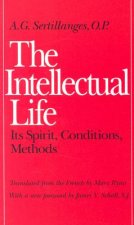
Intellectual Life
19.76 € -17 % -

Socrates' Defence
3.52 € -24 % -
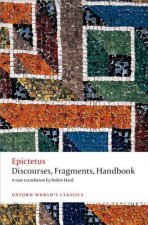
Discourses, Fragments, Handbook
11.69 € -18 % -

Ride the Tiger
21.47 € -16 % -

Thus Spoke Zarathustra
10.28 € -20 % -

Fear and Trembling
10.98 € -23 % -
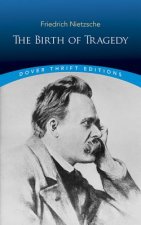
Birth of Tragedy
4.02 € -13 % -
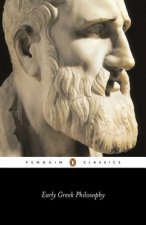
Early Greek Philosophy
14.21 € -23 % -
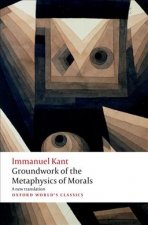
Groundwork for the Metaphysics of Morals
10.98 € -23 % -
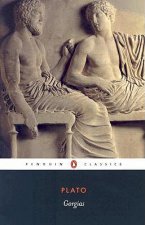
Gorgias
11.79 € -
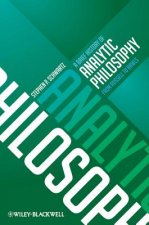
Brief History of Analytic Philosophy - From Russell to Rawls
38.11 € -2 % -
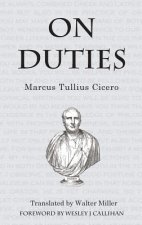
On Duties
14.11 € -

Discourses and Selected Writings
11.49 € -19 % -

Nicomachean Ethics
5.34 € -28 % -

Nausea
10.98 € -23 % -

Letters from a Stoic
12.40 € -13 % -

Meditations
21.17 € -15 % -

Simulacra and Simulation
18.85 € -17 % -

Phenomenology of Spirit
34.79 € -

Twilight of the Idols with The Antichrist and Ecce Homo
5.44 € -26 % -
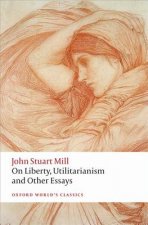
On Liberty, Utilitarianism and Other Essays
8.87 € -23 % -
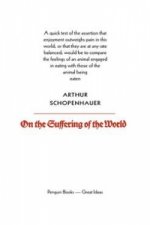
On the Suffering of the World
7.86 € -22 % -

Human Condition
21.67 € -8 % -

On the Shortness of Life
8.66 € -17 % -

Existentialism Is a Humanism
9.27 € -16 % -

Think
12.29 € -21 % -

Guide to the Good Life
18.95 € -1 % -
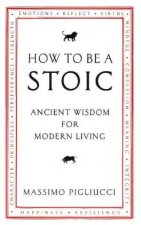
How To Be A Stoic
16.33 € -18 % -

The Symposium
9.37 € -17 % -

Human, All Too Human & Beyond Good and Evil
6.24 € -15 % -
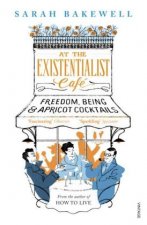
At The Existentialist Cafe
12.19 € -4 % -
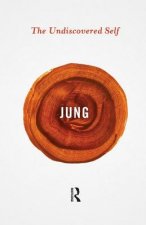
Undiscovered Self
28.23 € -
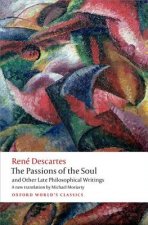
Passions of the Soul and Other Late Philosophical Writings
12.09 € -23 % -
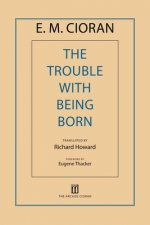
The Trouble With Being Born
13.30 € -16 % -
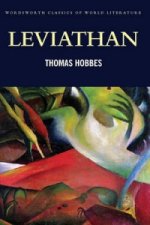
Leviathan
5.64 € -23 % -
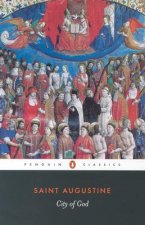
City of God
18.85 € -1 % -

Ecce Homo
9.97 € -23 % -
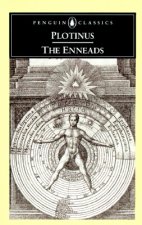
Enneads
16.93 € -15 % -
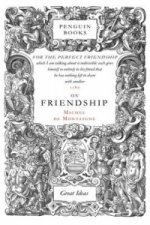
On Friendship
7.86 € -22 %
Osobný odber Bratislava a 2642 dalších
Copyright ©2008-24 najlacnejsie-knihy.sk Všetky práva vyhradenéSúkromieCookies



 21 miliónov titulov
21 miliónov titulov Vrátenie do mesiaca
Vrátenie do mesiaca 02/210 210 99 (8-15.30h)
02/210 210 99 (8-15.30h)